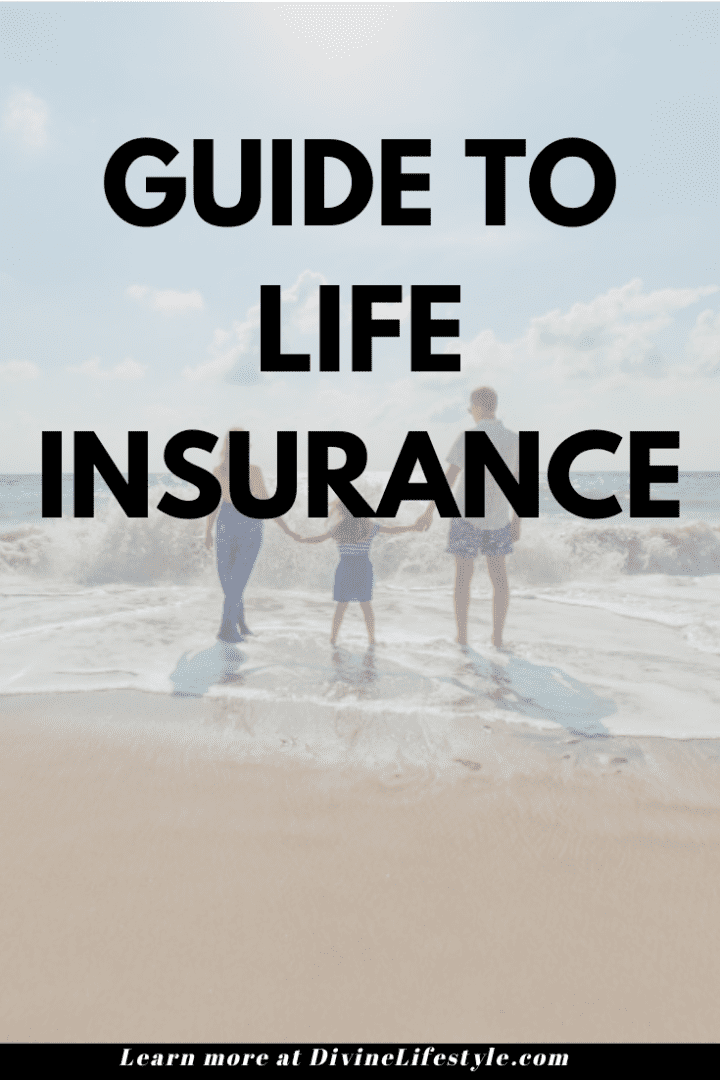Cold Season is Here! Get Chloraseptic
This is a sponsored post written by me on behalf of Chloraseptic®. All opinions are 100% mine. It is definitely cold and flu season. Wouldn't you know that I am dealing with my first...
Buying a life insurance policy is one of the ways to take ownership of your financial future. A life insurance policy is a policy where the insurance company promises to pay a certain amount of money to a beneficiary in exchange for a premium upon the policyholder's death. A life insurance policy is a legally binding contract. There are many options to choose from including the life insurance innovator Fabric by Gerber Life. We hope you find this Guide to Life Insurance valuable.

Life insurance has a death benefit and a premium. The premium is the amount of money a policyholder pays for the policy's insurance to be in force. Premiums are mostly dependent on the life expectancy of the insured. On the other hand, death benefits are the money the beneficiary receives from the insurance company upon the insured's death. Let's face it, these days life insurance for parents is an absolute MUST so it is important to learn about options.
There are different types of life insurance that a person can purchase. Term life insurance and whole insurance are the most common. The difference between term life insurance vs. whole life insurance is as follows.
If you're interested in learning more about life insurance options, you may want to explore what is term life insurance and how does it work to gain a better understanding of this valuable financial tool.
A term life insurance is purchased for a certain number of years before expiry. Death benefits are paid to your beneficiary if you die before the term is up. It's one of the most straightforward and accessible life insurance policies. The policy can last up to 30 years with a premium amount of 30 to $40 a month so get those Term life insurance quotes today.
Pros of term life insurance include:
Cons of term life insurance include:
Whole life insurance is a policy and does not have an expiration date. The coverage has a death benefit and cash value, which is interest received at a fixed rate upon the premium payment. Whole life insurance is the most expensive policy that can cost up to 15 times the term policy.
Pros of whole life insurance include:
Cons of whole life insurance include:
Universal life insurance is almost the same as the whole life policy because the premiums are shared between death benefits and cash value. The only difference is that the universal life insurance death benefits and installments can change without getting a new policy.
Pros of universal life insurance include:
Cons of universal life insurance include:
A variable life insurance policy is the same as the whole life, only that the cash values are different. The cash value in the system is an investment where the money goes to other mutual funds to get better returns.
Pros of variable life insurance include:
Cons of variable life insurance include:
The most important financial decision you can make is to purchase life insurance. Before getting one, consider the following factors:
You can either choose a lifetime life insurance or one that lasts for a certain period. Select the term life insurance for a specific period, but if you want insurance that will last as long as you live, the whole insurance is the one to consider.
It would help if you had guidance in the process of purchasing life insurance. There are available independent life insurance agents you can get help from in making the decision. A trusted advisor will have the best of your interest.
Consider an affordable policy so that when you need to cut on a budget, you will still pay for it. Many people stop paying life insurance when severe and might find it expensive when they embark.
When a beneficiary receives life insurance benefits, those benefits are not part of taxable income. But some situations may lead the beneficiary to be taxed. For example, the beneficiary has to pay tax when the policyholder upon death does not allow immediate payment of the benefits for a certain period. When the benefits are paid to an estate, they are also taxed.
Yes. Insurance companies give room for a policyholder to change his life insurance coverage. For example, if you need to change the percentage of what the beneficiary gets or change from life to term insurance, you are eligible for changes.
